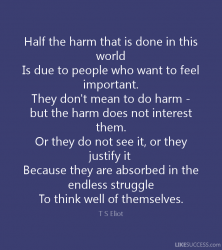livingston
20×102mm Vulcan
What to Bring to the Gun Fight
I started my first job in politics the year of the massacre at Columbine high school, which reignited a nationwide debate about the steps federal government should take to stop gun violence. In the nearly 20 years since then, there has been almost no progress. To the contrary, if you account for the expiration of the assault weapons ban in 2004, it’s fair to say we have gone backwards.
We could lay the death of progress at the feet of the Republican Party, which has become a wholly-owned subsidiary of the National Rifle Association, but that would ultimately be a cop out. Democrats have prevailed over recalcitrant Republicans and their most powerful interest groups before, most recently on issues like health care reform, financial regulation, reproductive freedom, and LGBTQ rights.
But when it comes to firearms we routinely fail. We are now in the midst of another gun debate that we will almost certainly lose. The majority of Americans support stricter gun laws; less than 40 percent of Americans live in a house with a gun; consensus Democratic gun control proposals like requiring universal background checks and banning assault weapons poll above 80 percent; and yet the idea that even trivial legislation will reach the president’s desk remains a fantasy.
Why can’t we win a debate when the facts, morality, and public opinion are on our side?
The fatal flaw in the Democratic strategy is a failure to heed one of the key lessons of twenty first-century American politics: Democrats never win when they fight on Republican terms.
The Democratic gun control strategy fails because it is defined by this poverty of ambition—the determination never to look beyond fear of political repercussions. Universal background checks and a ban on high-capacity magazines are good ideas and we should seize the opportunity to enact them if it presents itself. But they won’t come anywhere close to making gun violence in America a tolerable problem. We are nibbling around the edges instead of proposing bold, meaningful solutions such as:
More at ... What to Bring to the Gun Fight | Crooked Media
I started my first job in politics the year of the massacre at Columbine high school, which reignited a nationwide debate about the steps federal government should take to stop gun violence. In the nearly 20 years since then, there has been almost no progress. To the contrary, if you account for the expiration of the assault weapons ban in 2004, it’s fair to say we have gone backwards.
We could lay the death of progress at the feet of the Republican Party, which has become a wholly-owned subsidiary of the National Rifle Association, but that would ultimately be a cop out. Democrats have prevailed over recalcitrant Republicans and their most powerful interest groups before, most recently on issues like health care reform, financial regulation, reproductive freedom, and LGBTQ rights.
But when it comes to firearms we routinely fail. We are now in the midst of another gun debate that we will almost certainly lose. The majority of Americans support stricter gun laws; less than 40 percent of Americans live in a house with a gun; consensus Democratic gun control proposals like requiring universal background checks and banning assault weapons poll above 80 percent; and yet the idea that even trivial legislation will reach the president’s desk remains a fantasy.
Why can’t we win a debate when the facts, morality, and public opinion are on our side?
The fatal flaw in the Democratic strategy is a failure to heed one of the key lessons of twenty first-century American politics: Democrats never win when they fight on Republican terms.
The Democratic gun control strategy fails because it is defined by this poverty of ambition—the determination never to look beyond fear of political repercussions. Universal background checks and a ban on high-capacity magazines are good ideas and we should seize the opportunity to enact them if it presents itself. But they won’t come anywhere close to making gun violence in America a tolerable problem. We are nibbling around the edges instead of proposing bold, meaningful solutions such as:
- A national gun registry, so law-enforcement officials can know when someone is compiling an arsenal. The government can track purchases of allergy medicines that can be used to make methamphetamine, and fertilizers that can be used to make bombs, like the one used in Oklahoma City in 1994, but not deadly assault weapons. That’s absurd.
- Tracking and limiting purchases of ammunition.
- Requiring that guns use smart-gun technology, which would dramatically reduce accidental deaths, particularly among children, who, according to a 2016 study, are dying accidental deaths at the hands of guns at the rate of one every other day.
- A national gun buyback program similar to the one Australia instituted after a mass shooting that killed 35 people. That incident was in 1996. There hasn’t been another one since,
More at ... What to Bring to the Gun Fight | Crooked Media



